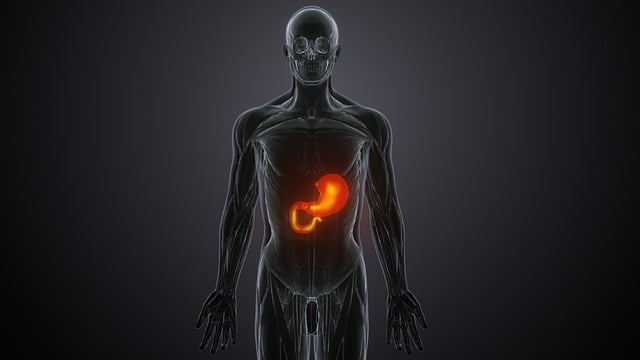Your cart is currently empty!

Understanding the Stress-Inflammation Connection
Understanding the Stress-Inflammation Connection: Navigating the Hazards of Silent Inflammation
The term burnout may be overused, but burnout in the workplace is still prevalent.
According to a 2023 study, burnout in the business sector was described as a silent epidemic that very few are prepared for. Research showed that a whopping 62% of employees reported feeling burned out.
Burnout is the result of long-term, chronic stress, due to ongoing situations that cause frustrations or anxiety, such as job loss, illness, or relationship challenges.
Chronic stress is often associated with the following symptoms:
- Emotional and physical exhaustion
- Migraines
- Stomach disorders
- Depression
- Disrupted sleep
A less associated symptom of chronic stress is inflammation.
Inflammation is part of the immune system’s response to infection or injury. Acute inflammation is essential for healing the body, especially after injury or surgery.
Symptoms of acute inflammation include:
- Pain
- Redness and warmth in the affected area
- Swelling
- Impaired function of the affected organs or body parts
- Fatigue
- Fever
Inflammation that fails to resolve itself, contributing to further tissue injury and disease, is known as chronic inflammation. Similar to chronic stress, chronic inflammation can lead to serious health problems, including:
- Autoimmune diseases, such as rheumatoid arthritis
- Cardiovascular diseases, such as high blood pressure and heart disease
- Gastrointestinal disorders like inflammatory bowel disease, Crohn’s disease, and ulcerative colitis
- Lung diseases, such as chronic obstructive pulmonary disease (COPD) and asthma
- Mental illnesses, such as depression
- Metabolic diseases, such as Type 2 diabetes
- Neurodegenerative diseases, such as Parkinson’s disease
- Some cancers
To better comprehend the connection between stress and inflammation, it’s important to understand the gut, brain, heart connection.
The gut is known as the second brain, as it produces many of the same neurotransmitters.
The heart, brain, and gut communicate through the vagus nerve. The vagus nerve acts as the communication center for all internal organs. This nerve starts at your brain and travels to your abdomen.
Unhealthy gut conditions can trigger chronic inflammation and activate the body’s stress response. This inflammation travels to the brain and impairs cognitive abilities, including memory, concentration, and decision-making.
There are additional factors that cause inflammation, and are closely linked to stress. These factors include:
Poor Diet
Consuming processed foods, high in sugar, refined carbohydrates, and unhealthy fats can trigger inflammation. When we’re stressed, our bodies overproduce cortisol, which can lead to cravings for high fat, high calorie food. Over consumption of these foods can further increase inflammation.
Sedentary Lifestyle
Lack of physical activity contributes to inflammation by disrupting the body’s natural processes, such as circulation and digestion. When we’re stressed, self-care, including activity, often becomes less of a priority, as we’re focused on the factors that are generating the stress. Individuals with sedentary jobs, are at greater risk for inflammation due to impaired circulation.
Fortunately, there are preventative solutions for inflammation that can also help with stress management.
Maintain an Anti-inflammatory Diet
Diets rich in whole foods, including fruits, vegetables, lean proteins, whole grains, and healthy fats, improve cognitive ability, gut health, and bodily functions. When our bodies are fueled properly, we have increased energy and feel better, making us more inclined to make healthy choices, including being active, which lowers stress levels.
Get Active
Engaging in regular exercise reduces inflammation, stress, and improves overall health and wellbeing. The key to consistent exercise is to do something that is enjoyable. When we tell ourselves we should do something because it’s good for us, not because we enjoy it, we’re less likely to maintain the activity long-term.
Practice Stress Management
Stress-reducing techniques such as meditation, yoga, deep breathing, and mental fitness exercises reduce inflammation.
Get Good Sleep
Getting 7-9 hours of quality sleep each night will support the body’s natural healing processes and reduce inflammation. Consistent, quality sleep improves mental clarity and problem solving ability, making challenges easier to manage, thus reducing stress.
Avoid Toxins
Minimizing exposure to environmental toxins by using natural cleaning products and avoiding smoking and excessive alcohol consumption, reduces inflammation. Alcohol consumption has been linked to depression and anxiety, which causes stress. For many individuals, moderate consumption of alcohol does not cause adverse reactions. However, everyone is different, and should listen to their body.
Maintain a Healthy Weight
Obesity is linked to chronic inflammation and joint stress. Consult with a healthcare professional to determine a healthy weight that is sustainable.
Stay Hydrated
Drinking 60-80 ounces of water daily supports the body’s detoxification processes, improves cognitive ability, and reduces inflammation. As with good sleep, proper hydration improves mental clarity, which enhances problem solving ability. Challenges are easier to manage and less stressful.
Incorporate Anti-inflammatory Herbs and Supplements
Herbs and supplements, such as turmeric, ginger, and omega-3 fatty acids, reduce inflammation in the body, promoting overall health and well-being.
Chronic stress and inflammation are closely linked. Inflammation is a direct response to stress in the body. Stress impacts our gut, heart, and brain health. When we take proactive measures to manage stress, we reduce inflammation and support our overall health and well-being, reducing the risk of burnout.
For additional details, questions or to schedule a complimentary discussion on how you can better understand the stress-inflammation connection to maximize potential and transform to lead a more balanced, healthier and happier life, please email me at coach@maximizeu.life
Lisa Hammett
Comments
One response to “Understanding the Stress-Inflammation Connection”
Wow amazing blog layout How long have you been blogging for you made blogging look easy The overall look of your web site is magnificent as well as the content




Leave a Reply